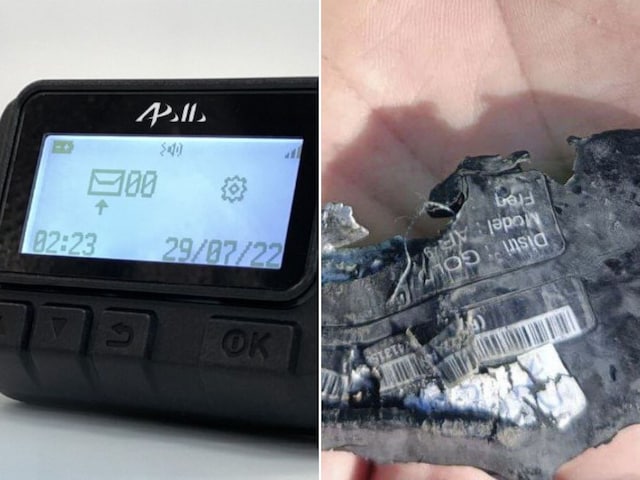The Explosive Threat of Embedded Technology and What Nigeria Must Learn. By Chidi Ekeh

The Explosive Threat of Embedded Technology and What Nigeria Must Learn

The recent events in Lebanon involving Hezbollah’s communication devices mark a new chapter in the complex world of espionage and technological warfare. In an unprecedented operation, thousands of pagers and walkie-talkies were transformed into deadly weapons, detonating simultaneously upon receiving coded signals. This operation, attributed to Israel’s Mossad, underscores the vulnerabilities of modern communication devices and the devastating consequences when those vulnerabilities are exploited.
For Nigeria’s security agencies, this incident should serve as a wake-up call. As we continue to evolve into a tech-reliant society, heavily dependent on imported communication devices, the threat of similar attacks becomes all too real. While Hezbollah’s reliance on pagers and walkie-talkies may seem anachronistic, the lessons learned from the explosive tampering of these devices are deeply relevant to us.

*The Complex Threat of Supply Chain Infiltration*
Perhaps the most chilling element of this operation is its sophistication. Hezbollah’s communication equipment was tampered with during production or transit, meaning the breach occurred long before the devices reached their intended users. In an increasingly globalized world, with much of Nigeria’s technology coming from abroad, this presents an uncomfortable truth: our own critical infrastructure could be compromised long before it arrives in our hands.
Telecommunication equipment, military hardware, and even seemingly innocuous consumer electronics are all vulnerable to this form of tampering. Nigeria, which imports a significant portion of its telecommunications and security equipment, must reevaluate its inspection protocols. Standard inspections, as evidenced by Hezbollah’s experience, are inadequate to detect the kind of subtle sabotage that can turn a harmless device into a weapon.

*Communication Vulnerabilities in Nigerian Security*
Nigeria’s security agencies are also not immune to reliance on potentially vulnerable communication systems. The idea that Hezbollah turned to pagers, believing them to be secure, highlights a broader challenge: even supposedly “safe” or “outdated” technology can be compromised. As Nigeria grapples with terrorism and insurgency in the Northeast, and militancy in the Niger Delta, secure communication channels are vital for coordination.
The Hezbollah case serves as a stark reminder that no communication device, whether a pager, walkie-talkie, or smartphone, is beyond compromise. Our security forces, like Hezbollah, may trust certain technologies for their perceived immunity to modern surveillance. Yet, the simultaneous explosions in Lebanon reveal that even “secure” communication systems can be weaponized when the right expertise is involved.
*Nigeria’s High-Stakes Technological Landscape*
With the rise of 5G and Internet of Things (IoT) devices, the potential for hardware tampering in Nigeria’s expanding digital ecosystem is vast. Devices used by government officials, security agencies, and critical infrastructure operators could be compromised at any point in the supply chain. The risk extends beyond physical explosions to cyberattacks, where seemingly innocuous software or hardware modifications could grant hostile actors access to sensitive information, or allow them to incapacitate essential services.
Furthermore, the implications for Nigeria’s private sector are equally severe. Energy, telecommunications, and finance industries are particularly vulnerable to sabotage via embedded technology. A concerted attack on Nigeria’s technological infrastructure, modeled after the recent events in Lebanon, could paralyze communication and financial networks, leading to widespread chaos and insecurity.
*Building Our Defense Against Espionage*
To mitigate these threats, Nigeria’s National Security Adviser must spearhead a comprehensive audit of our supply chains, especially for devices used by security agencies and critical infrastructure. This must include:
1. **Stricter Inspection Protocols*:
Employing advanced detection technologies capable of identifying embedded explosives or hidden modifications in communication devices, whether during manufacturing or transit.
2. **Collaborative Intelligence Gathering*: Strengthening relationships with global intelligence networks to track, in real-time, the origins and movements of critical hardware. Our agencies must be aware of any credible threats to our technological imports.
3. **Local Manufacturing and Development*:
Nigeria should reduce its dependency on foreign technologies by promoting local development and manufacturing of secure communication devices. By controlling the production process, we minimize the risk of external tampering.
4. **Robust Cybersecurity Measures*:
Beyond physical devices, Nigeria must prioritize cybersecurity. Embedded malicious software can be just as dangerous as physical explosives, allowing remote control or surveillance of key systems.
*Call to Action for Nigeria’s Security Leaders*
The recent Hezbollah attacks serve as a potent reminder of the evolving threats facing national security in the digital age. As we deepen our reliance on foreign technology, Nigeria must remain vigilant to the risks posed by hardware tampering and espionage. The National Security Adviser must lead a concerted effort to reassess our security protocols and ensure our technological imports are subjected to the highest scrutiny.
Nigeria can no longer afford to be complacent. Our enemies, both foreign and domestic, are watching closely—waiting for an opportunity to exploit our vulnerabilities. Now is the time to act, before we find ourselves the next victim of a silent, devastating attack hidden within the devices we trust most.
It’s time for proactive, not reactive, measures to secure Nigeria’s future.
Chidi Ekeh writes from Abuja FCT Nigeria




